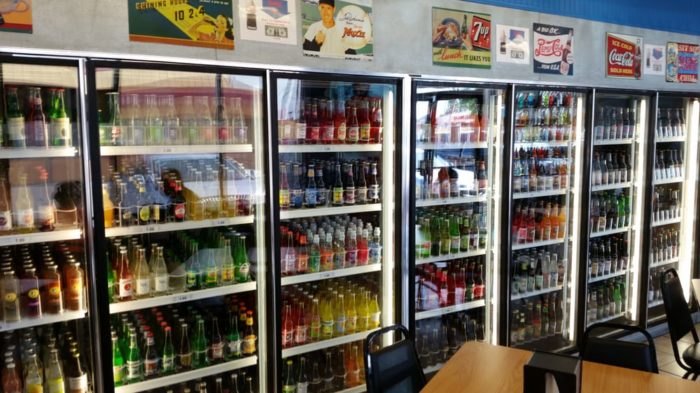Convivence Store Madness
The convenience store aisle is a colorful tapestry of soda alternatives, many touting themselves as healthy alternatives. Are they really healthier, or is it just clever marketing? Let’s dive into the key factors that determine the health value of these alternatives.
Sugar Content: Not So Sweet After All
Perhaps the most critical factor to consider is sugar content. Traditional sodas are notorious for their high sugar levels, contributing to a host of health issues like obesity and diabetes. Many drinks marketed as healthy alternatives can also be packed with sugar. For a truly healthier choice, look for beverages with low or no added sugars.
Artificial Sweeteners: A Sugar-Free Quandary
But what about sugar-free drinks? These often contain artificial sweeteners or sugar alcohols, which can cause digestive issues for some people. Moreover, these sweeteners can keep you hooked on sweet flavors, potentially undermining your dietary goals.
The Allure of Natural Ingredients
The term “natural” might seem synonymous with “healthy,” but it’s not that simple. While drinks with fewer artificial ingredients and preservatives are generally better, it’s crucial to remember that even natural ingredients like fruit juice can be high in sugar. The key here is balance and moderation.
Calorie Content: Beyond the Sugar
Sugar isn’t the only factor that can make a drink unhealthy. High-calorie drinks can contribute to weight gain, even if they’re low in sugar. Always check the calorie count, and remember, low-calorie doesn’t necessarily mean healthy.
Caffeine Content: A Hidden Factor
High levels of caffeine can be found in some fizzy drinks, energy drinks, or tea-based beverages. Moderate caffeine intake is generally safe, but excessive consumption can lead to side effects like jitteriness and insomnia.
Hydration and Nutritional Benefits: More than Just Quenching Thirst
Some drinks, especially sports or recovery drinks, are loaded with salts and electrolytes. Unless you’re an athlete or have been doing heavy exercise, these drinks can potentially increase your sodium intake. At the same time, some beverages offer health benefits, such as vitamins, minerals, or antioxidants.
A Sampling of Healthier Soda Alternatives
Several brands offer healthier alternatives to traditional sodas. Here are a few worth checking out:
- LaCroix and Spindrift offer a range of sparkling waters with natural fruit flavors and a modest amount of real fruit juice, respectively.
- Harmless Harvest offers organic coconut water, a natural source of hydration and electrolytes.
- GT’s Living Foods provides a variety of kombucha drinks, a type of fermented tea rich in probiotics.
- Zevia and Bai offer zero-calorie drinks sweetened with natural alternatives like stevia and erythritol.
- Hint is known for its flavored water free from sugars and artificial ingredients.
- Runa provides energy drinks made from guayusa, offering a natural source of caffeine with low sugar content.
Despite these healthier alternatives, remember that moderation is key, and nothing can replace the benefits of regular water intake.
Navigating the world of healthier soda alternatives is one of those overwhelming direct challenges, but it’s entirely possible with a little knowledge and label-reading practice. Remember, the goal is not to find a perfect drink but to make better choices one sip at a time. After all, every step towards a healthier lifestyle counts!
For more information, check out these resources:

